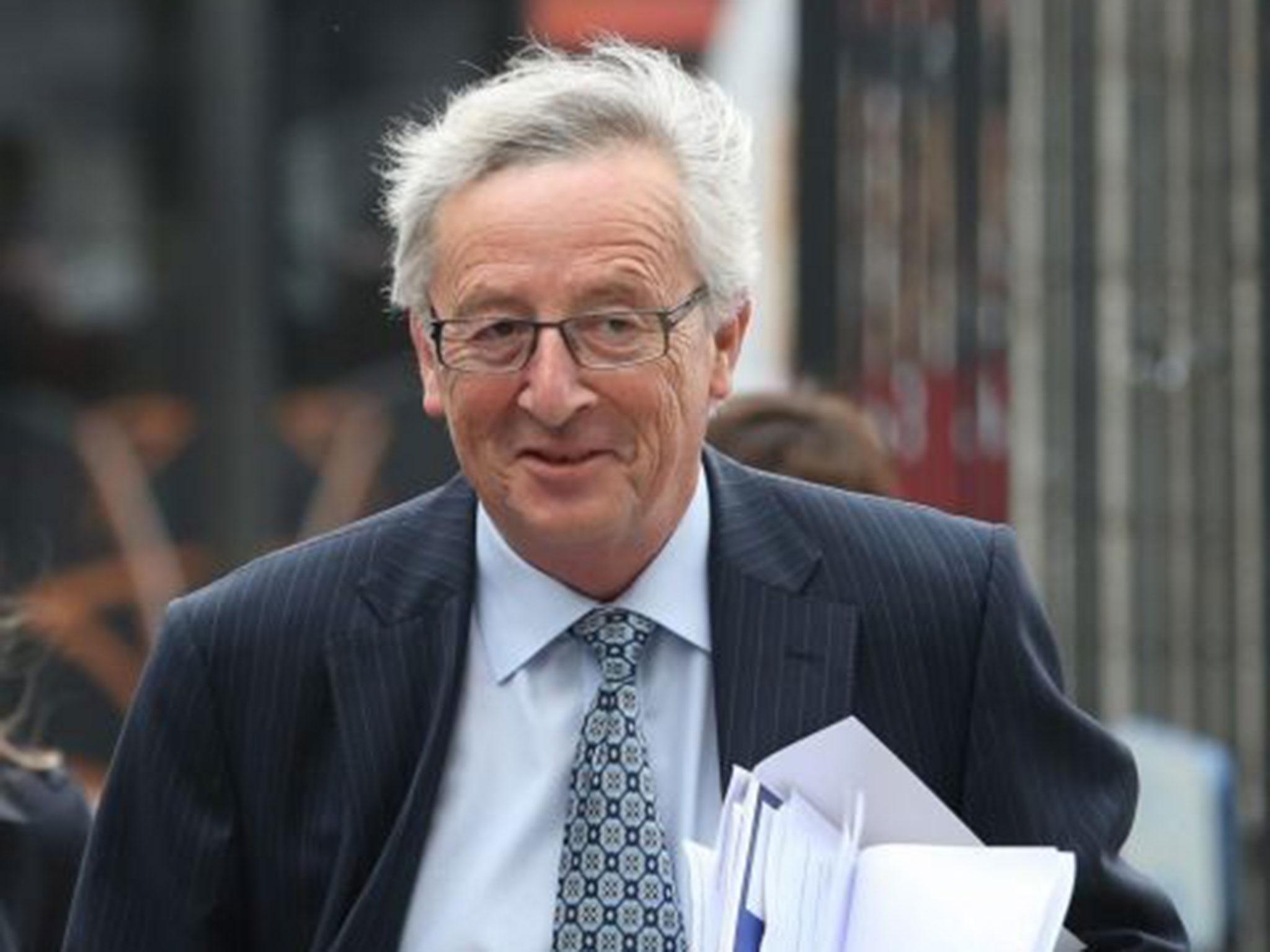EU referendum: ‘Too many part-time Europeans’ are diluting an ever closer union, claims Jean-Claude Juncker
European Commission chief bemoans the fact that ‘some of our colleagues in the European Council are listening exclusively to their national opinion and... not developing what should be common European sense’

“Our challenge, the day after, is twofold: to avoid contamination caused by Brexit and restart immediately a positive project for Europe” declared Emmanuel Macron, the French economic minister. “The European project cannot only be a system of abolishing rules. It will be the end of the ultraliberal Europe that the British pushed us into, a Europe without a political plan, centred on its domestic market”.
Of course, Mr Macron stated that he wished that the referendum vote would be for Remain, if only so that Britain does not turn into “another Gurnesey”, a trading post at the edge of the Continent. But, even if that happens, he added, France will take the initiative on a new dynamic for a “positive project” for Europe so there can be no doubt where the future lies.
This was one of an increasing number of statements by public figures in the European Union who sees Brexit as an opportunity - allowing, at last, other member states to accelerate the “ever closer union” which the United Kingdom has staunchly opposed over the years.
Those in the EU seeking greater economic and political integration have been rather cautious about voicing their views. This is partly because it was felt that it would have provided the Leave campaign in Britain with ammunition. But there was also recognition that there was growing antipathy towards Brussels in other member countries as well.
The Dutch voted in April rejecting, in a referendum, the EU’s proposed association agreement with Ukraine. Last December the Danes voted to keep its opt-outs on judicial matters, even if it cost the country membership of Europol. Last July the Greeks voted against the bailout package organised by the European Commission and the IMF.
But there is the growing view, among some, that controlling the danger of “contamination” Mr Macron raised could be presented as a valid reason to start taking corrective steps . “There is a need to guard some important principles, some important values”, a senior EU official said in Brussels last week. “It will not be acceptable to have states demanding the exceptionalism that the UK had enjoyed. Stopping that happening may need acceleration of some of the process of greater integration. It can be a powerful message.”
The belief that the European vision has become too diluted is deeply felt by many senior Eurocrats. Jean-Claude Juncker, the European Commission chief, bemoaned: “In former times, all those implied in the project were full-time Europeans. Now we have too many part-time Europeans. That is a problem because some of our colleagues in the European Council are listening exclusively to their national opinion. And if you listen to your national opinion, you are not developing what should be common European sense, a feeling for the need we have to put together our efforts.”
But even some of those who were “full-time Europeans” are urging caution on “ever closer union”. Wolfgang Schauble, the German finance minister, has long advocated that an integrated Europe would be far better equipped to face global challenges. He even proposed during the eurozone crisis that the EU should have a uniformed fiscal policy and appoint a joint finance minister.
But Mr Schauble, an important ally of Chancellor Angela Merkel, has now warned against a rush to further integration if Britain leaves and declared he would oppose such a move. “We couldn’t simply demand more integration as a result of a Brexit. This would be crude; many would be right in asking whether we politicians have still not understood”, he said. This would be the case if Remain won, but with a small majority. “We should understand it as a warning and a wake-up call that we simply can’t go on as before.”

The EU referendum debate has so far been characterised by bias, distortion and exaggeration. So until 23 June we we’re running a series of question and answer features that explain the most important issues in a detailed, dispassionate way to help inform your decision.
What is Brexit and why are we having an EU referendum?
Does the UK need to take more control of its sovereignty?
Could the UK media swing the EU referendum one way or another?
Will the UK benefit from being released from EU laws?
Will we gain or lose rights by leaving the European Union?
Will Brexit mean that Europeans have to leave the UK?
Will leaving the EU lead to the break-up of the UK?
What will happen to immigration if there's Brexit?
Will Brexit make the UK more or less safe?
Will the UK benefit from being released from EU laws?
Will leaving the EU save taxpayers money and mean more money for the NHS?
What will Brexit mean for British tourists booking holidays in the EU?
Will Brexit help or damage the environment?
Join our commenting forum
Join thought-provoking conversations, follow other Independent readers and see their replies
Comments